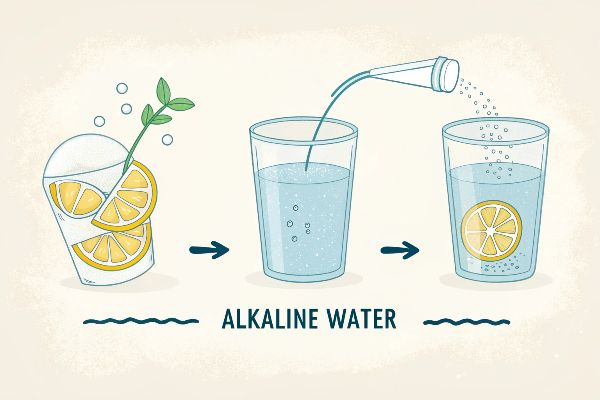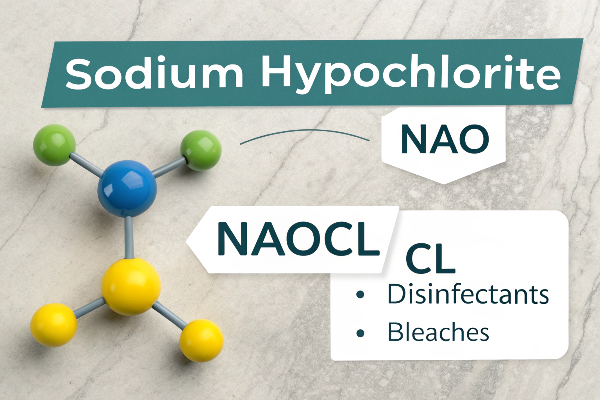Struggling to understand all the hype around titanium? Feeling lost in a sea of metals and materials? Wondering if it’s just another trend?
Titanium is a lustrous, silver-white metal known for its high strength-to-weight ratio, corrosion resistance, and biocompatibility. It is widely used in aerospace, medical implants, and high-end consumer goods.

But let’s face it, that definition alone doesn’t explain why everyone’s talking about it. We need to go beyond the basics.
What is so Special About Titanium?
Ever felt the frustration of your favorite jewelry tarnishing or your expensive watch rusting? Or perhaps you’ve experienced the discomfort of a heavy, cumbersome product?
Titanium stands out due to its exceptional properties, such as being incredibly strong yet lightweight1, highly resistant to corrosion2, and non-toxic to the human body3, making it incredibly versatile.

Diving Deeper into Titanium’s Uniqueness
Titanium isn’t just another metal; it possesses a unique combination of characteristics that set it apart.
| Feature | Description | Benefit |
|---|---|---|
| Strength | Titanium has a very high tensile strength4, meaning it can withstand a lot of force before breaking. comparable to steel. | Durable and long-lasting products. |
| Low Density | It’s remarkably lightweight, about 45% lighter than steel. | Easier to handle and use, especially in applications like aerospace and portable devices. |
| Corrosion Resistance | Titanium is highly resistant to corrosion from various substances, including saltwater, acids, and chlorine. I personal saw it. | Ideal for use in harsh environments and for products that need to withstand exposure to chemicals or the elements. |
| Biocompatibility | It’s non-toxic and non-reactive with the human body. | Safe for use in medical implants and other applications where it comes into contact with the body. |
Is Titanium a Metal or Steel?
Confused about whether titanium is a type of steel or something completely different? Many of us are!
Titanium is a pure elemental metal, not an alloy like steel. Steel is primarily iron mixed with carbon and other elements. Titanium, in its pure form, is a distinct element.

Understanding the Elemental Difference
Let’s clear up the confusion between titanium and steel.
| Aspect | Titanium | Steel |
|---|---|---|
| Composition | Element (Ti) | Alloy (primarily Iron (Fe) + Carbon (C) + other elements) |
| Type | Pure Metal | Alloy |
| Properties | Unique set of properties | Properties vary greatly depending on the specific alloying elements |
Think of it like this: titanium is like pure gold (an element), while steel is like bronze (an alloy of copper and tin).
What Does Titanium Do to the Body?
Worried about potential health risks associated with titanium, especially in medical implants? It’s a valid concern, and one I had myself.
Titanium is biocompatible, meaning it is generally non-toxic and does not react negatively with human tissues. This is why it is widely used in medical and dental implants.

Exploring Titanium’s Biocompatibility
Titanium’s interaction with the human body is largely positive, thanks to its unique properties.
- Osseointegration5: Titanium has the remarkable ability to fuse directly with bone tissue, a process called osseointegration. This makes it ideal for dental implants and orthopedic implants.
- Non-Allergenic6: Titanium is generally considered hypoallergenic, making it a suitable choice for individuals with sensitivities to other metals.
- Non-Toxic: It doesn’t leach harmful chemicals into the body.
However, although very rare, some individuals might experience allergic reactions or sensitivities to titanium.
Is Titanium a Good or Bad Metal?
Faced with the decision of choosing titanium over other metals, and wondering if it’s truly worth it?
Titanium is considered a high-quality metal due to its superior properties, such as strength, lightweight nature, corrosion resistance7, and biocompatibility8. However, it’s also more expensive than many other metals.

Weighing the Pros and Cons of Titanium
To determine if titanium is the "right" metal, consider the following:
| Advantages | Disadvantages |
|---|---|
| High strength-to-weight ratio | Higher cost compared to steel and aluminum |
| Excellent corrosion resistance | Can be more difficult to machine than some metals |
| Biocompatible | |
| Durable and long-lasting |
The "good" or "bad" aspect really depends on the specific application and your priorities.
Is Titanium More Expensive than Gold?
Considering titanium for jewelry or other luxury items and wondering how it compares to gold in terms of price?
Generally, titanium is less expensive than gold. The price of both metals fluctuates based on market conditions, but gold is typically a more precious and expensive metal.

Comparing the Value of Titanium and Gold
While the price of titanium9 can vary depending on its grade and form, gold10 remains a more valuable precious metal.
- Gold: Prized for its rarity, beauty, and use as a store of value. Its price is driven by investment demand, jewelry, and industrial applications.
- Titanium: Valued for its performance characteristics. Its price is primarily influenced by industrial demand, particularly in aerospace and manufacturing.
Think of it like this: gold is often chosen for its prestige and investment value, while titanium is chosen for its practical benefits.
Conclusion
Titanium, a remarkable metal, offers a unique combination of strength, lightness, corrosion resistance, and biocompatibility. While more expensive than some common metals, its unique properties make it a worthwhile investment for many, many specific applications.
-
Discover how materials like titanium can enhance product design and user experience with their unique properties. ↩
-
Learn about the significance of corrosion resistance in various applications, especially in jewelry and watches. ↩
-
Explore the safety and health benefits of using titanium in medical and everyday products. ↩
-
Understanding tensile strength is crucial for selecting materials in engineering and construction, ensuring safety and durability. ↩
-
Learning about osseointegration can provide insights into the success of dental implants and their long-term stability. ↩
-
Exploring why titanium is non-allergenic can help you understand its advantages for sensitive individuals. ↩
-
Understanding corrosion resistance can help you appreciate why titanium is valued in various applications, especially in harsh environments. ↩
-
Exploring biocompatibility will reveal why titanium is often chosen for medical applications, ensuring safety and effectiveness. ↩
-
Learn about the factors affecting titanium prices, which can be crucial for anyone considering it for jewelry or industrial use. ↩
-
This resource will provide insights into the factors that contribute to gold’s higher value, enhancing your understanding of precious metals. ↩





